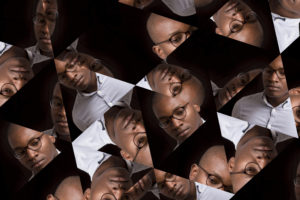
"Last week I was really into black, but now I'm having a blue phase -- I must be schizophrenic." If you or someone close to you has schizophrenia, you know that this casual misuse of the term is both hurtful and wildly off the mark. Schizophrenia doesn't cause fashion indecision or multiple personalities. Schizophrenia is an illness involving psychosis that causes people to lose touch with reality and withdraw into their own worlds. Because of this, people with schizophrenia often have trouble holding jobs, forming relationships, or finding their place in the world.
But although schizophrenia is a severe, disabling illness, it is treatable. Left untreated, it can have a devastating impact on the lives of both those with the illness and their loved ones.
Schizophrenia affects over 2 million adults in America, or about one out of every 100 people 18 and over. Contrary to common stereotypes, people with schizophrenia aren't likely to be dangerous or violent. The condition is usually a life-long struggle, however, and some people who have it lack the understanding that they have a psychotic illness. Those who do often feel stigmatized.
What are the symptoms of schizophrenia?
No single sign separates people with schizophrenia from people with other types of mental illness. Instead, there's a collection of problems that add up to a diagnosis of schizophrenia.
People with schizophrenia often have paranoid thoughts, delusions, or hallucinations, which means that they hear or see things that are not there or believe things that are not true. They may think that their next-door neighbor is trying to spy on them or that radio stations are broadcasting their thoughts aloud to others. They may also see, smell or hear things that aren't real, including voices in their heads.
To others, they might seem unemotional, and their speech may be flat, something that doctors call "flat affect." Like people with major depression, they may be unable to enjoy things that should be fun or pleasurable.
Many people with schizophrenia are withdrawn and don't make friends easily. Their thinking may also be muddled, making it difficult to pay attention, process complex ideas, remember things or organize their thoughts into clear speech.
Some people with schizophrenia may also have movement disorders, like muscle twitches, repetitive motions, or general clumsiness.
Depending on what type of schizophrenia a person has, some symptoms may be stronger than others. People with schizophrenia may be brilliant, like the Nobel prize-winning mathematician John Nash, but they still need treatment. People with paranoid schizophrenia, for example, may not have much trouble with their moods or thinking, but they are plagued by delusions and hallucinations.
People with disorganized schizophrenia may have delusions, but they tend to have scattered thoughts that jump from place to place. Their thinking may be so garbled that their speech becomes impossible or nearly impossible for others to understand. They may not be able to think clearly enough to cook a meal or even get dressed on their own.
People with catatonic schizophrenia may be stiff and rigid or may not be able to move at all. Or, oddly, they may be extremely active to the point of frenzy. Their movements may be unusual or extremely repetitive. They may repeatedly say words just spoken by someone else, or their speech may be mangled and impossible to understand.
A related condition called schizoaffective disorder combines some of the symptoms of schizophrenia with episodes of either major depression or bipolar disorder.
Since many symptoms of schizophrenia can also be found in other illnesses such as bipolar disorder, drug addiction, or Alzheimer's disease, mental health specialists need to do a careful medical and psychological work-up to make sure the diagnosis is correct.
Who's at risk for developing schizophrenia?
Schizophrenia strikes people from all backgrounds. The first symptoms such as hallucinations and delusions usually show up in a person's late teens to early 30s. Men and women are equally likely to develop schizophrenia, although the symptoms usually start a couple of years earlier in men. Schizophrenia seems to affect all races and ethnicities equally, but it's about 10 times more common in people who have close relatives with the condition.
What causes schizophrenia?
Nobody knows exactly what causes schizophrenia. But as with many other mental illnesses, some combination of genes and outside forces seems to be to blame. Extremely stressful life experiences may trigger the illness in people. Researchers have also noted that people who develop schizophrenia may have also suffered malnourishment or exposure to viruses while in the womb, or taken psychoactive drugs during their teenage years.
How is schizophrenia treated?
Medications that reduce delusions and hallucinations -- so-called antipsychotics -- are a lifeline for people with schizophrenia. As long as patients keep taking their medications, they'll have an easier time managing daily activities and fitting in with the rest of society. Older drugs such as perphenazine (Etrafon) may be helpful for some people but are not used as often now because of their side effects, which can include drowsiness, constipation, restlessness or neurological problems such as involuntary jerking movements.
Newer drugs called atypical antipsychotics are less likely to produce some of the side effects associated with older drugs. However, they are still very powerful drugs and patients need to be monitored for other serious side effects such as reduced white blood cell counts, an increased risk of diabetes, high cholesterol, high blood pressure, and weight gain.
Antipsychotic medications tend to work fairly quickly. Hallucinations and agitation can fade within a few days, and delusions usually get better within a few weeks. If a person stops taking his or her medications, these troubling symptoms could come rushing back. As reported in the British Medical Journal, two-thirds of people who are hospitalized for a relapse of schizophrenia have either partially or completely stopped taking their medication. One of the most common challenges is getting people with schizophrenia to agree to take their medications.
There is also growing interest among scientists in treating some cases of schizophrenia without drugs, especially because the side effects are so profound, according to an article in The New Scientist. Psychological counseling and support and "brain training" can be extremely helpful for people with schizophrenia. One-on-one sessions with the right therapist can help patients understand their condition and find ways to cope. (Trust is critical to help patients take medications and stay on them.)
Training for job or life skills can help patients lead independent lives; vocational and social counseling, often called rehabilitation is crucial. Many communities have outreach programs such as the Program for Aggressive Community Treatment (PACT) that provide 24-hour access to professionals who can help schizophrenia patients take their medications and navigate daily life.
Since drug and alcohol abuse are the most common problems that occur in conjunction with schizophrenia, treatment of the illness is often more successful if combined with substance abuse treatment. In addition, educating the families of people with schizophrenia is also crucial, since they so often help care for those with the condition.
What is the outlook for someone with schizophrenia?
Schizophrenia is a lifelong issue. Patients need to keep taking their medications and stick with their treatment plan no matter how good and stable they may feel. If they stay under medical care, they can usually have a long and meaningful life. Unfortunately, many patients still fail to get the help that they need. About 10 percent of people with schizophrenia commit suicide, a tragedy that's especially common among young men with the condition. Homelessness is another real possibility: One study including data from eight different countries found that roughly 10 percent of homeless people were schizophrenic.
What can people with schizophrenia do to help themselves?
Above all else, people with schizophrenia need to get medical help, develop a support network, and take their medications as prescribed. Because many people who suffer from the illness do not typically stay on medications, they may need help from family members or professionals to identify warning signs of relapse and keep up with their treatment. People with schizophrenia should know that alcohol or illegal drugs will only make their symptoms more severe and more difficult to manage.
For many, substance abuse counseling may help them. If they ever feel suicidal or out of control, they should seek help immediately, whether it's at a doctor's office, a crisis hotline, or a hospital emergency room. A good support system can help someone with schizophrenia stay on track, a task often too much for them to handle alone.








